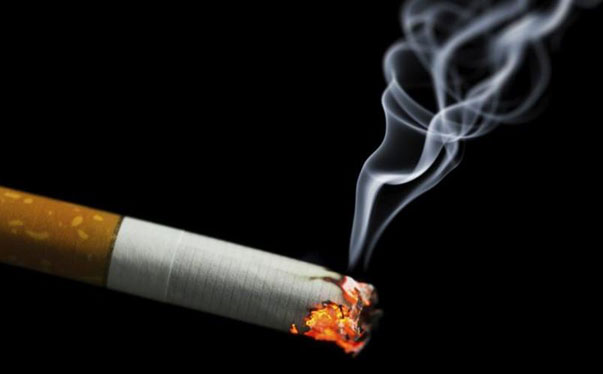ISLAMABAD: Contrary to the claim of the local tobacco industry about the market share of non-duty paid/illicit cigarette brands, a study has revealed that the actual market share of such cigarettes had stood at 10 per cent, instead of the exaggerated 40 per cent mentioned by the manufacturers in the country.
Interestingly, the tobacco industry has earlier claimed that the market share of illicit brands in Pakistan has risen exponentially due to high tobacco taxes and now stands at 40 per cent of the total cigarette market. Upon this, However, this study has now made it clear that market share of such cigarettes had stood at 10 per cent in the country.
Available copy of a report titled as ‘Study to assess the volume of illicit cigarette brands in Pakistan’ is enough to prove wrong the claim of tobacco industry pertains to the volume of sale of illicit cigarette brands in Pakistan. The proportion of illicit packs in the data set as a whole is around 10 per cent, said the report.
According to the report, “it was also noted that a higher percentage of illicit packs were observed in the expensive brands category as opposed to the cheaper brands. Similarly, it was observed that in most cities the number of illicit packs in the expensive brands category were much higher than the cheaper brands.
It is relevant to mention here that Ministry of Health led this study to assess the volume of illicit cigarette brands in Pakistan. The study was done in the backdrop of a claim by the tobacco industry that the market share of illicit brands in Pakistan has risen exponentially due to high tobacco taxes and now stands at 40 per cent of the total cigarette market.
For the purpose of this study, ten cities and their adjoining rural areas were selected: Karachi, Lahore, Sukkur, Multan, Hyderabad, Peshawar, Quetta, Rawalpindi, Muzaffarabad and Nowshera. These cities were chosen to represent the geographical spread of the country and to also represent different socio-economic realities across Pakistan. Moreover, each city was divided up into clusters based on a retail census.
A total 2,111 retailers were visited by the survey teams across the ten cities and two types of information were collected from the retailers. First, the survey team asked the retailers to retain all the empty packets cigarettes and collected 7,496 packs.
Second, the retailers were asked a series of questions, for example identifying the most expensive pack they sold that day, the cheapest pack that was sold that day, the price at which it was sold and how many packs were sold during the day. Overall, the maximum percentage of illicit packs was around 9 per cent of the total cigarettes in the market, the report said.
Taking cognizance of the gravity of the matter, National Health Services, Regulation and Coordination Ministry has requested Federal Board of Revenue to reconsider the policy of reducing cigarette prices and withdraw the 3rd slab created in Finance Act 2017 immediately to save lives of people of Pakistan.
Recommending FBR to implement on a priority basis the tracking and tracing system for tobacco companies to curb the illicit trade in tobacco products, Health Ministry, in a letter to Chairman FBR, has asked to review reduction in cigarette prices and removal of 3rd slab immediately to save the lives of countrymen. Moreover, to curb the illicit trade in tobacco products, the tracking and tracing system for tobacco companies should be implemented on a priority basis, said Health Ministry’s letter.
The senate committee on National Health Services, Regulations and Coordination (NHSRC), in its meeting held on 5th December, 2017, has taken strong notice of the decrease in the prices of cigarettes and strongly recommended to FBR to reconsider the policy. The committee has also directed the FBR to carry out a three-year audit of tobacco companies to determine whether they are involved in tax evasion and recommended to introduce the tracking and tracing system for tobacco companies to stop tax evasion.
Tobacco taxes that translate into price increases or considered the single most effective option for reducing tobacco use and increasing revenues higher tobacco taxes save money by reducing tobacco-related health care costs according to WHO study, a 10 per cent increase in tobacco prices will reduce consumption upto 8 per cent in low- and middle- income countries.
It is pertinent to mention that, prior to federal budget 2017-18, this ministry proposed to tax the lower slab of all brands of cigarettes at Rs44/pack of 20 cigarettes. This proposal was based on a research study on tobacco taxation in Pakistan jointly conducted by FBR , World Bank, University of Toronto, Johns Hopkins University, University of Illinois at Chicago and Beaconhouse National University.
According to the study, a uniform specific excise tax that accounts for Rs44/pack of 20 cigarettes could reduce number of smokers by 13.2 per cent, increase tax revenues by Rs39.5 billion, leading to a reduction of 0.65 million premature deaths caused by smoking among current smokers, while also preventing 2.55 million youth from taking up smoking. In addition to above, this ministry also requested the ministry of finance/FBR to take enforcement measures to curb illicit trade in tobacco products.
In the Finance Act 2017, a new slab with a reduction in FED (i-e Rs16) was created. According to FBR, the third tier was introduced to tackle the menace of illicit, non-duty paid cigarettes, besides significant growth in revenue, was also expected. The committee was told by the FBR that, by introducing 3rd tier, overall net payment of sale tax and federal excise duty by legitimate cigarette industry was increased by 11 per cent from Rs20,404 million and to Rs22,623 million (from July-November, 2017).
























